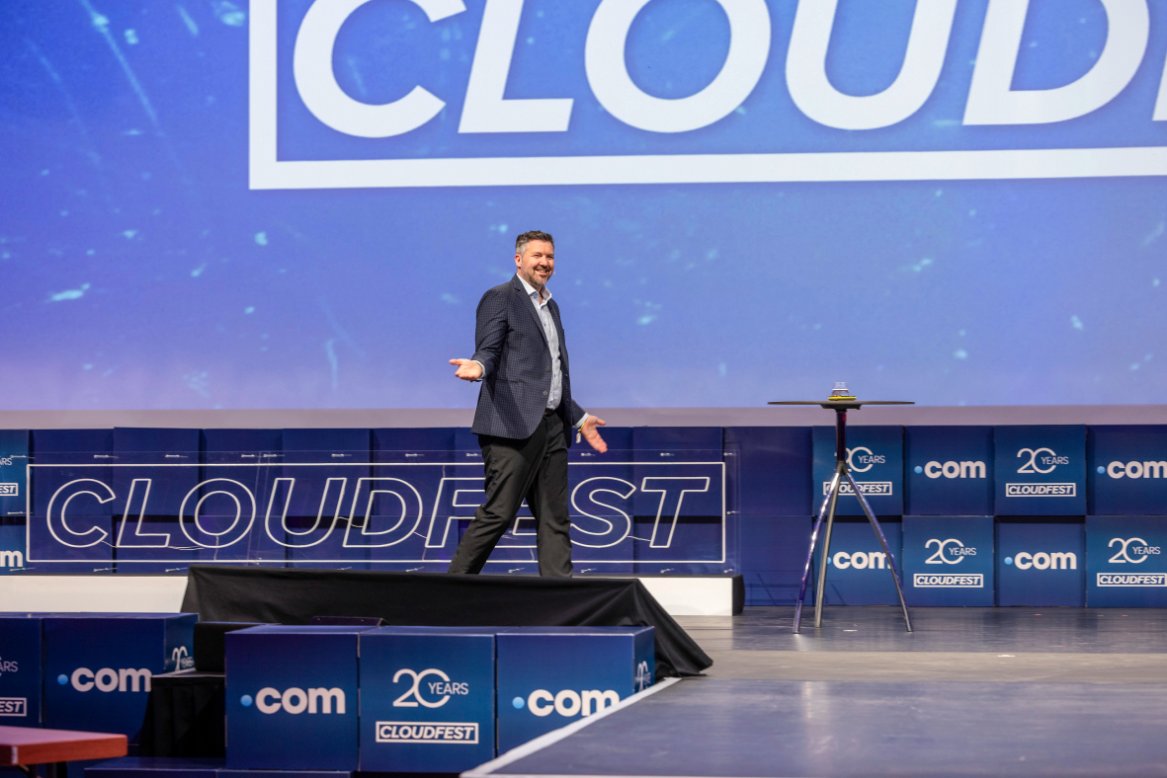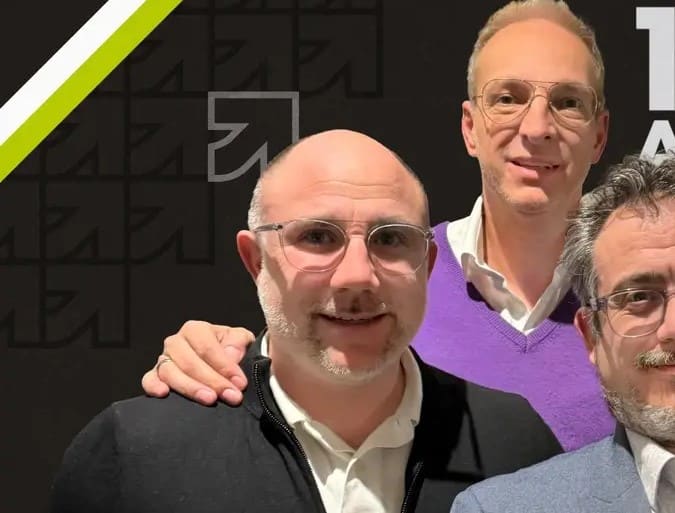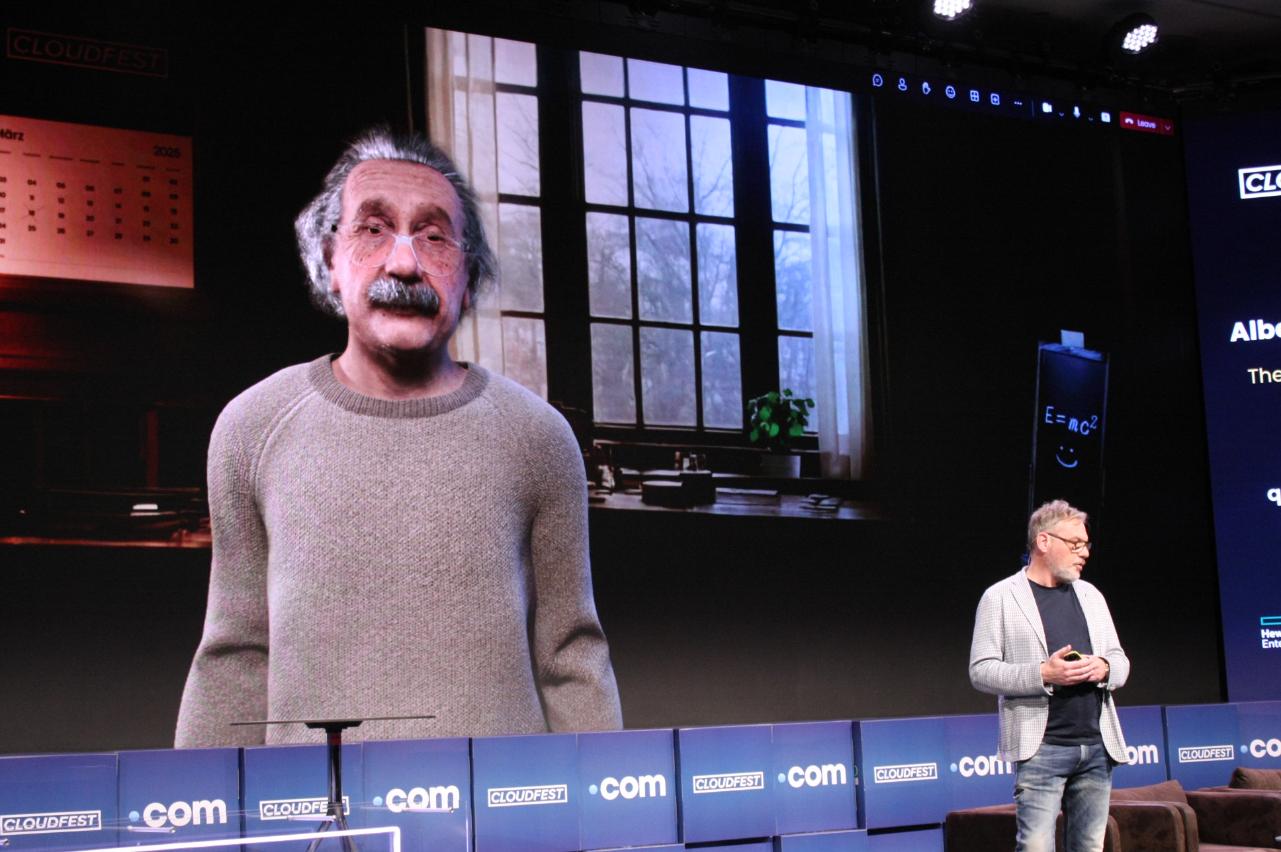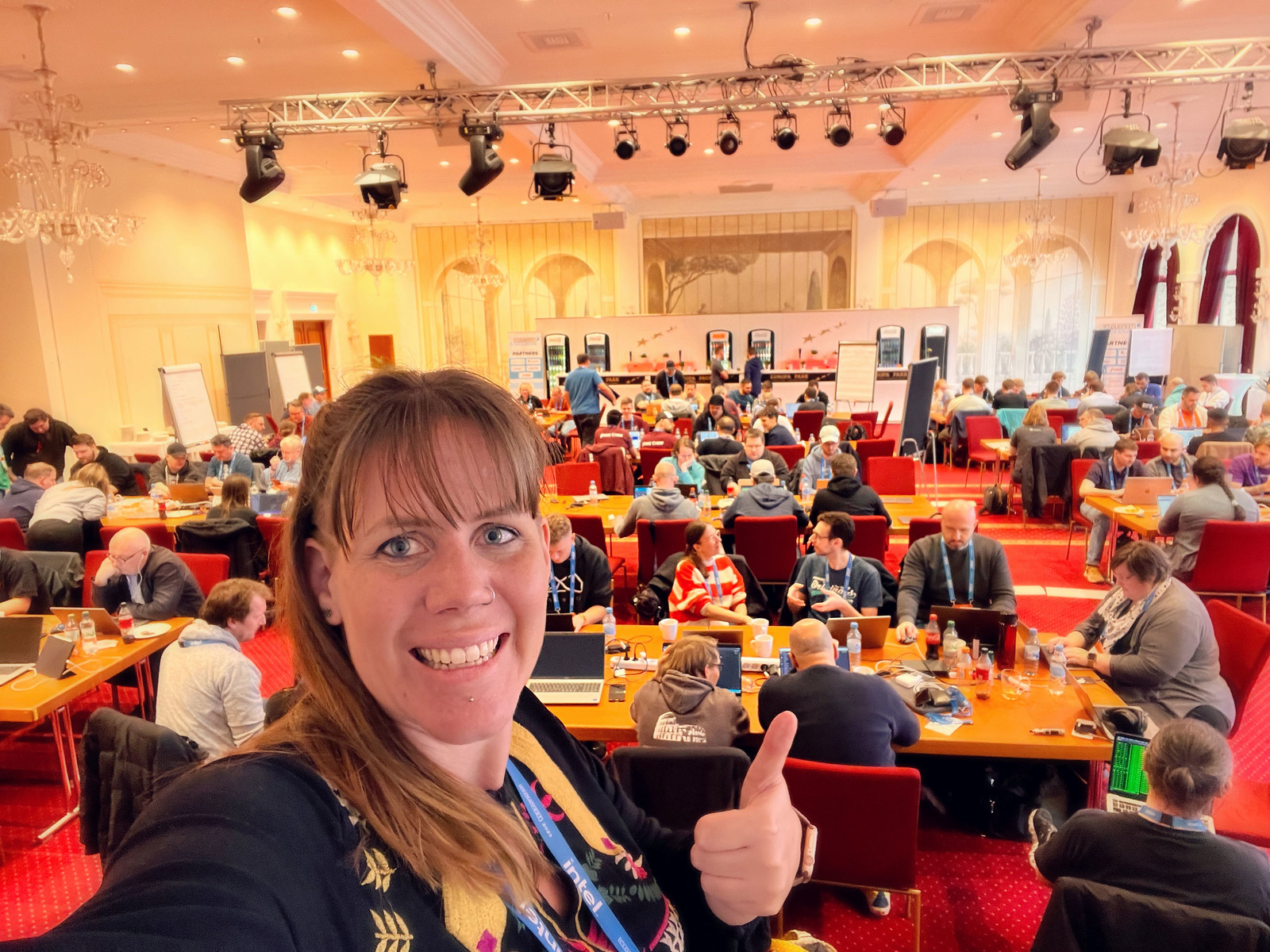Of all the topics covered at CloudFest, government policy is not considered among the top five sexiest. This is really unfair, since policy is as important as it is fascinating. We caught up with Christian Dawson—Co-founder and Executive Director of the Internet Infrastructure Coalition (i2Coalition), Co-founder and Senior Partner at Open Eye, and member of the CloudFest Advisory Board—to shed some light on what’s going on with internet policy, and how those who build and deliver the Cloud can help make sure that legislation is helpful instead of harmful.
See? Policy is so hot right now!
(A quick note before we begin: the bold text is our emphasis—Christian isn’t just randomly shouting.)
We’re about to ask you some questions about policy strategy, but first could you tell our wonderful readers a bit about your background?

In this case, we really will begin at the beginning! I’ve been deeply involved in the internet infrastructure and technology space for my entire career. Straight out of college, I jumped into the world of web hosting with ServInt, where I spent nearly two decades building a business that grew alongside the internet itself. We were trailblazers in hosting long before the Cloud era—we had to figure it out as we went along! That experience shaped my understanding of the challenges and opportunities for small and mid-sized companies in the tech ecosystem.
As ServInt grew, I became more and more involved in policy advocacy. I saw the critical role that public policy plays in protecting innovation and ensuring a level playing field for businesses like ours. In 2012, I co-founded the i2Coalition to ensure that the people building the internet’s backbone—web hosts, data centers, cloud providers, and registries—have a voice in shaping the policies that affect them. When ServInt was sold, I stepped into a full-time role as the Executive Director of i2Coalition, where I’ve had the privilege of advocating for an open and secure internet.
Alongside my policy work, I’ve co-founded Open Eye, a consultancy that helps purpose-driven businesses and nonprofits achieve sustainable growth and navigate transformation. And, because I can’t seem to sit still, I also run the Curationist Foundation, a nonprofit focused on empowering museums—particularly smaller, underrepresented institutions—to bring their collections into the digital age and reach a global audience. [Ed. note: I’ve worked with Christian for how many years now , and I’m just finding out about the Curationist Foundation during this conversation? Seriously? —Jordan]
Ultimately, my career has been about building and enhancing projects that make a difference. Whether it’s advocating for internet freedom, helping businesses grow, or elevating cultural heritage, I’m always seeking new ways to make a positive impact.
What drew you to the policy side of the internet?

For me, it started with a mix of curiosity, necessity, and a sense of responsibility. Early on, with ServInt, we were focused on growing our business and supporting our customers—policy wasn’t really on my radar. That all changed when a piece of legislation called the Combating Online Infringement and Counterfeits Act (COICA) crossed my desk!
It wasn’t just another policy—it was a direct threat to the way the internet functioned, especially for companies like ours at the infrastructure layer. COICA proposed giving the Department of Justice the power to block websites without due process, which would have disrupted not just “rogue” sites but the broader ecosystem of hosting and internet services. I knew this wasn’t something we could ignore, but as I dug into the process, I realized how few people in our space were paying attention to these kinds of issues.
That led me to meet with policymakers like Senator Ron Wyden, who gave me and my colleague David Snead some critical advice: “Get more of you involved.”
That advice stuck.
It wasn’t just about fighting one bad bill—it was about recognizing the ongoing need for internet infrastructure providers to have a seat at the table in policy discussions.
The battle against SOPA/PIPA a few years later crystalized everything for me. It wasn’t just a legislative fight—it was an opportunity to educate lawmakers on how the internet works and what was at stake. We worked with incredible partners across industries to show that bad policy at the infrastructure level could cripple innovation, stifle small businesses, and disrupt entire ecosystems.
That first taste of advocacy led directly to co-founding the i2Coalition, which became a permanent voice for internet infrastructure providers. What drew me to policy—and what keeps me engaged—is this idea that good policy can create an environment where the internet thrives as an open platform for innovation, while bad policy can have devastating consequences.
I still see it as my responsibility to stand up for those who build the backbone of the internet. Most of them don’t have the resources to lobby on their own, and that’s where organizations like i2Coalition come in. The SOPA/PIPA fight taught me the power of collaboration, the importance of education, and how essential it is for our industry to proactively engage in these conversations. So that’s why I’m here—and why I believe this work is more critical now than ever.
What are the dynamics around internet governance and its ripple effect? We’re thinking of GDPR and NIS2 as examples, but you can include more as well

The dynamics of internet governance are fascinating because they reflect the delicate balance between enabling innovation, protecting fundamental rights, and addressing the very real challenges of a global, interconnected network. Governance in this context is not about centralized control but about cooperation among diverse stakeholders: businesses, civil society, academia, governments, and technical communities. This is the heart of the multistakeholder approach.
GDPR is a great example here. When the European Union introduced this data protection regulation, it sent shockwaves through industries worldwide. GDPR wasn’t just a European law; it effectively set a global standard for privacy because compliance became necessary for doing business with European citizens. While the principles of data protection and privacy were well-intentioned, the implementation burden hit small and medium-sized businesses disproportionately hard, showing how regulations meant to protect individuals can sometimes create barriers for smaller players in the digital economy.
NIS2 is another good one to examine, focusing on the security and resilience of networks and information systems in the EU. It pushes companies to adopt stricter cybersecurity measures, which is a positive step toward a safer internet. However, like GDPR, the implementation is key. For example, the directive’s scope includes cloud and hosting providers, but the requirements could unintentionally strain smaller infrastructure providers as they try to comply. This is a prime case where the infrastructure layer needs more representation in policy discussions to ensure proportionality and avoid unintended consequences.
Ripple effects!

Yes, the ripple effects of these laws are significant. These sorts of regulations create frameworks that often influence other regions, either through the adoption of similar standards or by creating de facto global norms. But they also highlight the challenge of applying localized rules to a global internet. When poorly implemented, they can fragment the internet—what some call the “splinternet”—as countries impose their own regulatory models without coordination. This could lead to situations where we no longer have one global internet but a patchwork of regional ones, governed by conflicting rules.
The multistakeholder model is critical in avoiding this fragmentation. It allows all affected parties to contribute their expertise and perspectives, ensuring that policies are effective, enforceable, and designed to minimize negative side effects. For example, within ICANN and the Internet Assigned Numbers Authority (IANA), we see how global collaboration ensures that the DNS, the backbone of the internet, continues to function seamlessly despite regional pressures. [Note: DNS creator Paul Mockapetris has spoken at CloudFest, sharing his truly unique vantage point with the community—in fact, here is Paul Mockapetris speaking with Christian Dawson and Verisign CTO Dr. Burt Kaliski, Jr.! —Jordan]
What’s clear is that the internet’s infrastructure is uniquely global. Unlike content, which can be regulated at the jurisdictional level, infrastructure transcends borders. Policymakers need to understand this distinction to craft laws that address their concerns without disrupting the global internet. By championing a multistakeholder approach, we can ensure that the internet remains an open platform for innovation and connection, rather than a fragmented and heavily regulated system.
Let’s also talk about intermediary liability. This phrase ALWAYS comes up when discussing policy, and is usually addressed as part of the content layer. Why should CPSs, hosters, and MSPs care about intermediary liability?

Intermediary liability is often misunderstood as a concept that primarily concerns content platforms—social media companies, for instance. But the reality is that it directly impacts the entire internet ecosystem, including cloud providers, hosting companies, and managed service providers (MSPs). For these players, intermediary liability protections, like those afforded by Section 230 in the U.S.A., are fundamental to how they operate.
At its core, intermediary liability shields infrastructure providers from being held responsible for the actions of their users. Without these protections, the risks of liability would make it nearly impossible for many infrastructure providers to offer services that touch content—services like spam filtering, malware detection, or parental control settings. Imagine a world where hosting companies are sued for defamatory comments on a customer’s website, or where a cloud provider is held liable for copyright infringement simply because they host the content in question. Without liability protections, smaller companies in particular would be forced to preemptively moderate or even censor their users’ activities just to stay in business.
This is not just a theoretical concern. As the internet continues to evolve, governments and regulators are increasingly looking to infrastructure providers as potential enforcement points for tackling harmful or illegal content online. While it might seem easier to address issues like piracy or hate speech at the infrastructure level, doing so often introduces unintended consequences. Infrastructure providers lack the ability to accurately assess content, and enforcement at this layer can lead to overly heavy-handed actions like shutting down entire websites or services for the behavior of a single user.
When the only tool you have is a hammer, everything looks like a nail

At the end of the day, infrastructure providers are not content creators or publishers—they’re enablers of the digital economy. Their role is to provide the foundation that allows content creators, businesses, and end users to interact and innovate. Intermediary liability protections ensure that they can continue to perform this critical function without being burdened by disproportionate legal and financial risks.
For CPSs, hosters, and MSPs, this issue is existential. Losing intermediary liability protections would force these companies to become de facto gatekeepers of the internet, fundamentally changing their role in ways that could stifle innovation and limit access to online services. It’s why groups like the i2Coalition are so vocal about protecting these principles. These protections aren’t just about legal safety—they’re about ensuring a vibrant, open internet that works for everyone.
Not every tech company is a multi-billion-dollar behemoth that can bend the ears of government officials. How can SMBs get into the conversation about internet regulation—both in their region and internationally?

This question is the heart of why the i2Coalition was created. Small and medium-sized businesses (SMBs) are the backbone of the internet, yet they often lack the resources to advocate for themselves in policy discussions. Big companies have dedicated teams and significant budgets for lobbying, but smaller players—the web hosts, data centers, and cloud providers—are just as critical to the internet’s functioning. These companies deserve a voice, and that’s where organizations like the i2Coalition come in.
When we started the i2Coalition, we designed it with SMBs in mind. We made our membership dues scalable, so even the smallest providers could afford to join and have an equal voice alongside larger companies. This wasn’t about creating a club for big tech; it was about ensuring that every company, regardless of size, could contribute to shaping the policies that affect their businesses and their customers.
For SMBs, joining a collaborative group like ours is one of the most effective ways to engage in the policy conversation. Individually, a small provider might not have the bandwidth to monitor legislative developments or educate policymakers, but collectively, we can achieve meaningful change. When SMBs join forces through organizations like the i2Coalition, their voices are amplified. They gain access to resources, expertise, and a community that is actively working to protect their interests.
Beyond joining a coalition, SMBs can make an impact by building relationships with local policymakers and participating in regional industry events. Often, just showing up and sharing your perspective as a small business owner can make a difference. Policymakers need to hear real-world examples of how laws and regulations affect companies on the ground—not just the giants. It’s those stories that help shape better, more balanced policy.
Ultimately, the goal is to make sure the internet remains a level playing field, where new entrants and smaller companies can compete and thrive. That’s why we do what we do at i2Coalition. Nobody’s getting rich off of this work—we do it because we care, and we care most about the small businesses that make up the internet’s infrastructure. It’s about giving them the voice they deserve in conversations that will shape the future of the internet.
What should a Cloud company do internally to stay on top of legislative movements?

The good news is that you don’t have to do it alone! That’s exactly why organizations like the i2Coalition exist—we’re here to make it easy for companies of any size to stay informed and engaged without needing to build out entire policy teams of their own.
The first step? Join us! Becoming a member means you immediately gain access to resources like our monthly reports, which break down what’s happening in the world of internet regulation in clear, actionable terms. We analyze and deliver the information so you can focus on running your business while still staying ahead of the curve. You’ll get insights on everything from intermediary liability to global data protection trends, tailored for cloud providers, hosters, and others in the infrastructure space.
Next, consider participating in the i2Coalition’s working groups. Whether you have just a little time to give or a lot, we make it easy for you to get involved at a level that works for your schedule. Our groups are designed to keep members informed about specific policy areas and to give them a voice in shaping our advocacy efforts. You don’t have to be a policy expert—we’re here to guide you through the process and make sure your perspective is heard.
Internally, the best thing a Cloud company can do is designate someone—whether it’s a team member with a knack for staying informed or even the CEO—to be the point person for engaging with groups like ours. That way, you’ll have someone in your organization who’s aware of legislative movements and can raise a flag when something might impact your business.
Ultimately, staying on top of legislative movements is about being proactive rather than reactive. And the i2Coalition is built to help you do exactly that, with minimal effort on your part. We exist to make the process as smooth and accessible as possible, so you can focus on what you do best: building great products and services. level playing field, where new entrants and smaller companies can compete and thrive. That’s why we do what we do at i2Coalition. Nobody’s getting rich off of this work—we do it because we care, and we care most about the small businesses that make up the internet’s infrastructure. It’s about giving them the voice they deserve in conversations that will shape the future of the internet.
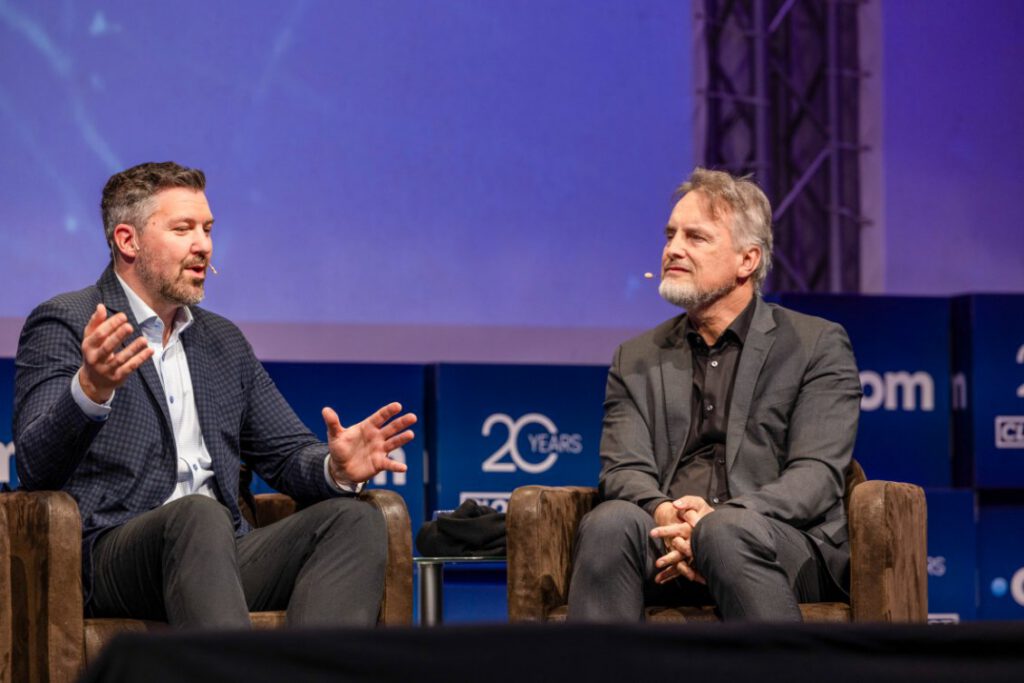
Why do you think that policy discussions are considered so relatively un-sexy at industry events? What would change that image?ay on top of legislative movements?

Let’s be real—policy is un-sexy by nature. Nobody wants to think about regulations and compliance when they could be focusing on growing their business or brainstorming the next big idea. Policy often feels like taking your medicine: you know you need to do it to stay healthy, but you’d rather be doing anything else. At an event like CloudFest, which is all about inspiration, connection, and moving the needle forward, the idea of sitting through a policy session can feel like the opposite of that energy.
That said, policy does matter—a lot. The things we deal with in the policy world often represent real threats to how the internet works and, by extension, to your business. But the flip side of a threat is opportunity, and that’s where knowledge comes in. Understanding what’s happening on the policy front is the key to mitigating risks and protecting your business, which is why attending policy sessions should be part of your strategy.
The challenge for those of us leading these discussions is to make them not feel like taking your medicine. At i2Coalition, we put a lot of effort into making our policy sessions engaging, clear, and actionable. My promise to anyone attending one of my talks is this: you’ll leave with the information you need to stay ahead of potential issues, but you won’t leave bored or overwhelmed. We work hard to make policy approachable and understandable—breaking down the complexity into relatable, real-world examples that are easy to digest.
If I were making a list of things to do at CloudFest, I’d still say start with the exciting, business-growing opportunities. But don’t skip the policy talks entirely—come to one of ours. We’ll make sure you walk away informed, prepared, and maybe even a little entertained. Because staying ahead of policy isn’t just about protecting your business—it’s about empowering you to focus on what you do best without unnecessary worries.
We don’t want our readers to think that you’re all business—you have a rock ‘n’ roll side as well! In fact, you came up with the band name for the Lords of Uptime, right? How did that relationship come about?

Absolutely! The Lords of Uptime is one of my favorite side stories in the tech world. Soeren von Varchmin, who’s been a friend of mine for decades, decided he wanted to start a band with other folks in the internet industry. It was a bit of a passion project, and when he came to me for ideas, I threw out the name “Lords of Uptime”—a nod to the importance of keeping the internet running smoothly. It stuck, and the band was born.
Now, here’s where it gets funny. I don’t play any instrument well enough to actually be on stage with them, so they jokingly decided I could “manage” the band. At first, I thought it was all in good fun, but then they actually asked me to find them gigs outside of CloudFest. Suddenly, I was in over my head trying to figure out how to book venues and navigate the wild world of rock band management!
Later, the band—true to their rock ‘n’ roll spirit—put out a fake press release claiming they “fired” me for being a secret fan of rap over rock. It was all in good fun, of course, and a testament to the camaraderie we share in the tech community.
The Lords of Uptime have become a bit of a legend, performing alongside serious rock icons like Billy Morrison, Dave Navarro, and Sebastian Bach.
And we had Marky Ramone as our guest drummer for 2024!at relationship come about?

And it was an amazing show! It’s so incredible to see how a simple idea between friends turned into this wild, ongoing journey! While I may not be booking those gigs anymore, I’m proud to have played a small part in their story—and I’m always cheering them on from the sidelines.
Continuing with the music theme (as it were), if the internet infrastructure industry were a genre of music, what would it be, and why?

The internet infrastructure industry is indie-alternative, without a doubt. It’s not the polished mainstream pop of the hyperscalers, who dominate the charts with massive market shares and predictable beats. Instead, it’s the scrappy, innovative, and often overlooked players—the ones experimenting with new sounds and approaches, carving out their space in the market with passion and creativity.
And you were into it before it was popular

Ha, yes! Like indie alternative music, the internet infrastructure industry thrives on diversity, flexibility, and a deep connection to its audience. The providers in this space don’t want to follow a major-label formula; they’re about serving niche markets, supporting open standards, and finding innovative ways to solve unique challenges. The love of the craft is as important as the commercial success.
This ecosystem is growing fast, too, with the Alternative Cloud segment projected to surge from $160 billion to over $300 billion in the next few years. That’s because it resonates with the “Alternative Buyer”—those who seek something different, something more tailored and aligned with their values. Whether it’s developers building on open-source platforms, businesses in-housing their IT to escape hyperscaler lock-in, or startups leveraging the flexibility of shared hosting and WordPress, this industry is playing to its own beat. [Ed. note: CloudFest Americas, happening in November, is the Alternative Cloud festival! —Jordan]
And just like an indie alternative track can surprise you with its authenticity and depth, the internet infrastructure space is full of unexpected innovation. It’s not trying to be everything to everyone, but it’s essential to the internet’s foundation—just like those indie artists are essential to keeping music interesting.
You tend to be pretty busy onstage at CloudFest, but when you and your team come to Europa-Park, who are you most looking to meet?

CloudFest is a highlight of my year because it brings together such a diverse range of people from across the internet ecosystem.
It should be the highlight of EVERYONE’S year!
While I always look forward to connecting with infrastructure providers, policymakers, and industry innovators, this year, I’m especially excited about a new kind of connection we’re introducing: Improv)e Your Edge.
This session is something I’m incredibly proud of. It’s an interactive workshop that brings improv comedy techniques to the world of cloud professionals, showing how skills like active listening, adaptability, and creativity can give you a real competitive edge. The idea is that in an era where AI can handle more and more routine tasks, your ability to think on your feet, empathize, and connect with others will be what sets you apart.
We’re teaming up with Julie Nolke and Gina Louise Phillips, two incredible improv performers, to lead the session. They’ll not only teach the principles of improv—like the famous “Yes, And” approach to collaboration—but they’ll also help attendees see how these techniques apply directly to their work in customer service, team dynamics, and problem-solving. It’s not just a sit-back-and-listen kind of session either; attendees will get to jump in and try improv exercises themselves, with guidance from the experts.
What excites me most about (Improv)e Your Edge is how different it is from anything you’d expect at a cloud conference. It’s not about the technical or the transactional—it’s about the human. And it’s fun! People will laugh, learn, and leave with real skills they can take back to their teams.
[Ed. note: This session is super-exciting for me as well, and you should all take part. Just saying. —Jordan]
So this year at CloudFest, I’m looking to meet the kind of people who embrace that spirit of curiosity and playfulness. If you’re interested in exploring new ways to grow both professionally and personally, or if you’re just curious about what improv has to do with cloud services, I hope you’ll join us. It’s going to be a session you won’t forget—and maybe the most unexpected thing you take away from the conference.
What excites you most about the next edition of CloudFest? After all, you helped us craft the theme…

What excites me most about CloudFest 2025 is how we’re bringing the Human Edge to the forefront of the cloud industry. In a world where AI is advancing rapidly, the focus isn’t just on making technology smarter—it’s on making the humans behind it even better at what only we can do. That’s the thread running through every aspect of the agenda this year: redefining ourselves as not just a tech industry, but as a service industry powered by human ingenuity, empathy, and connection.
Our theme tracks—Innovation with Empathy, Cybersecurity and Networks, and Service is Everything—are all built around this concept. For example, Innovation with Empathy explores how we can leverage AI responsibly, ensuring it complements rather than replaces the human touch. On Cybersecurity and Networks, we’re tackling the ever-evolving threat landscape with a focus on the critical role human vigilance plays in securing infrastructure. And in Service is Everything, we’re looking at how companies can turn customer interactions into opportunities for deeper engagement and loyalty.
What really sets this year apart, though, is our focus on fostering a sense of community. CloudFest has always been a place to share ideas and build connections, but in 2025, we’re doubling down on that spirit. It’s about celebrating the diverse, independent ecosystem that makes up the Alternative Cloud, and ensuring that together, we can face the challenges and opportunities of the AI era.
This year’s programming is bold, thoughtful, and designed to inspire—and I couldn’t be more excited to see how it comes together.
